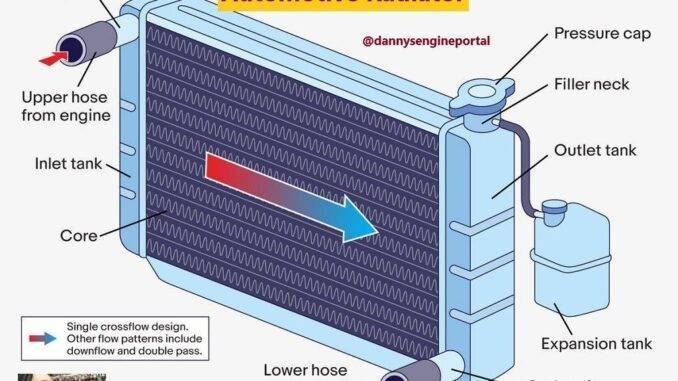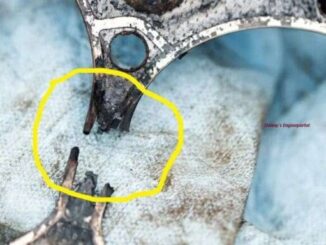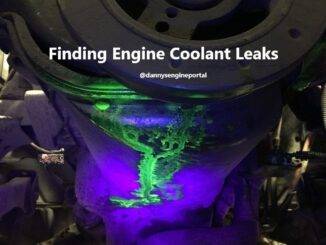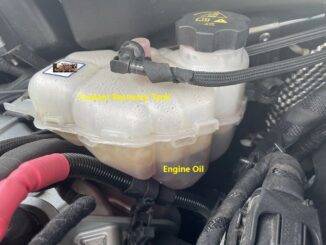
Your radiator, helps your engine operate within a “normal” temperature range, of about 195 to 220 degrees F.
However, as effective as today’s engines are, they still waste a lot of the heat energy they produce.
So, the most common problem, a car radiator falls prey to, is clogging, (both internally and externally). In addition, to all the possible locations, leaks can happen.
The primary cause of a overheating radiator is debris, and sediment building up and causing a blockage.
So, this means that coolant cannot pass through and flow properly. As a result, causing the radiator and engine to overheat.
First, the average gas engine, is only about 22 to 28 percent effective. Ironically, the hotter an engine runs, the more effective it becomes. But, there’s a limit, because aluminum pistons and heads, can only get so hot, before they soften and melt.
The same goes for cast iron. Engineers have been playing with new ceramic materials and metallic ceramic alloys. All in an attempt to build high temperature, super effective engines. Consequently, they’ve realized some significant gains. But, ceramic is still too expensive, for everyday applications.
How Hot, Is Too Hot
Above all, a relatively constant operating temperature, is needed. And, is required for proper emissions control, good fuel economy and performance.
So, a 50 50 mixture of water and ethylene glycol, will boil at 225 degrees. Adding, a radiator cap rated at 15 psi will increase the boiling temperature, up to 265 degrees.
Piston to cylinder clearances are much tighter, to reduce blow by for lower emissions. Valve stem to guide clearances are also closer, to reduce oil consumption and emissions. Plus, many engines today, have aluminum heads with (OHC). However, such engines don’t handle higher than normal temperatures well. As a result, they are very vulnerable, to heat damage. That’s why, anytime temperatures climb beyond the normal range, the engine is running, in the danger zone.
Consequences Of Your Radiator, Overheating
So, if the engine overheats, the first thing that will happen is, the engine will start to detonate. Then, the engine will ping and start to lose power, under load. Because, the combination of heat and pressure, exceed the octane rating of the fuel. And, if the detonation problem continues, the hammer like blows may damage the rings, pistons or rod bearings.
Also, overheating can also cause, pre ignition. As, hot spots develop inside the combustion chamber, that become a source of ignition for the fuel. The erratic combustion can cause detonation, as well as engine run on, in older vehicles with a carburetor. Hot spots, can also be very bad and burn holes, right through the top of pistons.
A blown head gasket, can also be a result of overheating. Because, heat makes aluminum swell, almost three times faster, than cast iron.
The related stress, can distort the head and make it swell, in areas that the are hottest. Like those between exhaust valves, in adjoining cylinders. Also, areas that have reduced coolant flow, like the narrow area that separates the cylinders. The typical aluminum head, swells most in the middle, which can crush the head gasket. And, will cause a loss of torque in the gasket, letting coolant and combustion leaks to occur.
Overheating, Is Also A Common Cause Of, (OHC) Seizure And Breakage
If the coolant gets hot enough to boil, it may cause old hoses, or a weak radiator to burst. Pistons may swell up and scuff or seize in their bores. This, in turn may cause serious engine damage. Exhaust valve stems, may stick or scuff in their guides. This, in turn, may cause valves to hang open. Furthermore, which can damage pistons, valves and other valvetrain parts. Finally, if coolant gets into the crankcase, you can kiss the bearings and bottom end of the engine goodbye.
So, never ignore a warning lamp or gauge, showing a high temperature reading. And, stop driving at the first sign of overheating. Turn the engine off, and let it cool down. And, try to find and fix the cause, before risking further damage.
Some Of The Common Causes, Of Radiator Overheating Include:
- Low coolant level.
- Loss of coolant (through internal or external leaks).
- Poor heat conductivity, inside the engine. Because, of too many deposits, in the water jackets.
- A bad thermostat, that doesn’t open.
- Poor airflow, through the radiator.
- A slipping, fan clutch.
- Or a broken, electric cooling fan.
- A collapsed, lower radiator hose.
- An eroded or loose water pump impeller.
- Even a bad, radiator cap.
Heat always flows, from an area of higher temperature, to an area of lower temperature. So, the only way to cool hot metal is to keep it in constant contact, with a cooler liquid.
So, the only way to do that is, to keep the coolant in constant circulation.
As soon as the circulation stops, temperatures begin to rise, and the engine starts to overheat. The coolant also has to get rid of the heat it soaks up, while passing through the engine. So, the radiator must be capable of doing its job. And, that requires the help of an effective, engine cooling fan. Furthermore, the thermostat must be doing its job. And, that is to keep the engine temperature, within the normal range. But, if the car thermostat fails to open, it will block the flow of coolant and the engine will overheat.
What To Check, When It Comes To Maintenance, Of Your Radiator:
Thermostat Issues
So, severe overheating can often damage, a good thermostat. Therefore, if the engine has overheated, replace the thermostat. The hose should not feel very hot, until the engine has warmed up, and the thermostat opens. If the hose does not get hot, it means the thermostat, is not opening.
On newer vehicles with computerized engine controls. The wrong thermostat, can prevent the computer system from going into, closed loop. As a result, causing major performance and emission problems. Because, the engine failed to reach, its normal operating temperature.
Cooling System Leaks
Loss of coolant, because of a leak, is a common cause of overheating.
Some Of the Common Places To Leak Include:
- Hoses.
- Radiator.
- Heater core.
- Water pump.
- Thermostat housing.
- Head gasket.
- Freeze plugs.
- Automatic transmission oil cooler.
- Cylinder head(s) and block.
Make a careful visual inspection, of the entire cooling system. Then, pressure test the cooling system, and radiator cap.
Cooling Fans
So, with mechanical fans, a faulty fan clutch, will cause most overheating problems. But, with electric fans, check to see that the fan cycles on, when the engine gets hot. If the fan fails to come on, check the fan motor wiring connections, relay and temperature sensor. Try jumping the fan, directly from the battery. If it runs, the problem is in the wiring, relay or sensor.
Water Pumps
Any wobble in the pump shaft or seepage, would call for replacement. The wrong pump, may also cause an engine to overheat. Some engines with serpentine drive belts, require a special water pump. Because, it turns in the opposite direction.
Belts And Hoses
Check belt tension and condition. A loose belt, may prevent the water pump, from circulating coolant, or the fan from turning fast enough. Also, replace hoses, if the old ones are over 5 years old. Sometimes a lower radiator hose will collapse, under vacuum at high speed. This can happen if, the reinforcing spring inside the hose, is missing or damaged.
Car Radiator
The most common problems car radiators fall prey to are, clogging (both internal and external) and leaks. Dirt, bugs and debris, can block air flow through the core. And, lower the radiator’s ability, to dissipate heat. Internal corrosion and a build up of deposits. Can also inhibit coolant circulation, and reduce cooling. A good way to find clogs is to use, an infrared thermometer, to “scan” the surface of the radiator.
Back flushing the cooling system and or using chemicals, can remove rust and hard water scale. When filling the cooling system, be sure you get it completely full. This will help avoid air pockets in the head(s), heater core and below the thermostat. Because, they can interfere with the proper coolant circulation and cooling. You may have to loosen a heater hose, to get all the air out of the system.
Excessive Exhaust Back Pressure
A clogged catalytic converter, is usually the culprit here. But, don’t miss the possibility, of a crushed exhaust pipe. Check intake vacuum at idle. Because, if it reads low and continues to drop, inspect the exhaust system.
Under Or Over Advanced Ignition Timing
May also add, to detonation and preignition.
Dragging Brakes
A caliper that’s sticking or a parking brake that isn’t letting go, may be making the engine work too hard.
Keeping Tabs On The Heat
So, one tip is to look for, heat tabs on the engine. While OE engines do not have them, remanufactured engines, usually have the tabs add by the rebuilder. So, heat tabs are designed to melt, if the engine has overheated. Consequently, overheating shows lack of customer care, and often voids a manufacturer’s warranty.
OE Problem Or User Neglect
Overheating problems, which usually fall into the categories of either, user or technician responsibility include the following:
- Older copper and aluminum radiators, tend to get clogged.
- Thermostats, either wrong install or sticking closed.
- Failure to replace older or failing pumps or install a new pump properly.
- Heater core leaking, a common problem.
- Coolant leaks from either hose connections or from the cylinder head, due to overheating.
- Bad radiator hoses or belts.
Car owners usually, don’t maintain their cooling systems, as well as they should. So, every two years or 30,000 miles coolant should be replaced. Also, the mixture of antifreeze and water, should always be 50 50. A mixture with more than 50 percent antifreeze, will cause the coolant to not perform properly. And, with less than 50 percent, the engine can freeze and crack.
Conclusion
So, a radiator is important, because, it is the only way your engine, vents heat during operation. Finally, the most common cause of radiator failure, is physical damage.
BY DANNY BENDER




